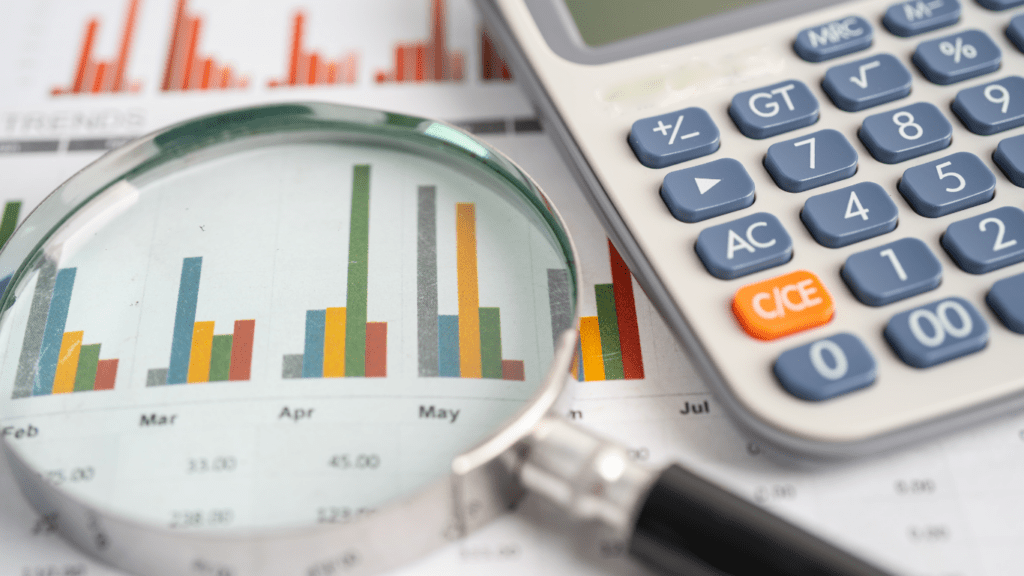In the wake of the COVID-19 pandemic, the world has witnessed unprecedented shifts in the global economy. As economies grapple with lockdowns, supply chain disruptions, and reduced consumer spending, the implications of this crisis are far-reaching. From stock market volatility to rising unemployment rates, the economic landscape has been significantly altered.
Navigating through these uncertain times requires a deep understanding of the interconnectedness of global markets and the resilience of economies. As I delve into the intricate web of economic repercussions stemming from the pandemic, it becomes evident that adaptability and innovation are key to weathering the storm. Join me on this exploration of the profound economic impacts of COVID-19 and the strategies nations are employing to mitigate its effects.
Overview of the COVID-19 Pandemic and Global Economy
The initial impact of the COVID-19 pandemic on economic indicators was profound and immediate. Global stock markets experienced sharp declines, supply chains were disrupted, and unemployment rates surged rapidly in many countries. The interconnectedness of economies became apparent as the effects of the crisis reverberated across borders, affecting industries worldwide.
Long-term economic trends triggered by the pandemic are expected to reshape the landscape of global economies for years to come. The reliance on digital technologies, remote work models, and e-commerce has accelerated, marking a fundamental shift in how businesses operate. Nations are reevaluating their economic policies and strategies to adapt to the new normal and build resilience against future crises.
Key Sectors Affected by COVID-19
The COVID-19 pandemic has profoundly impacted key sectors of the global economy, with significant repercussions felt across various industries. Let’s explore how the pandemic has specifically influenced specific sectors:
Travel and Tourism
The travel and tourism industry bore the brunt of the pandemic’s effects as lockdowns and travel restrictions led to a sharp decline in international travel. Airlines, hotels, and travel agencies faced unprecedented challenges as tourism came to a standstill. The sector is anticipated to undergo a gradual recovery as vaccination efforts ramp up and travel regulations evolve.
Manufacturing and Supply Chains
The manufacturing sector faced disruptions in production and distribution due to lockdowns, social distancing measures, and fluctuating demand patterns. Global supply chains were severely affected, highlighting the vulnerabilities of complex interdependent networks. Companies are now reassessing their supply chain strategies to build resilience and adapt to potential future disruptions.
Retail and Consumer Services
Retail and consumer services experienced significant shifts as lockdowns forced the closure of physical stores and changed consumer behavior. E-commerce witnessed a surge in demand, prompting retailers to invest more heavily in online platforms. The pandemic accelerated the adoption of digital solutions in retail, leading to a transformation in the way businesses interact with consumers.
These sectors serve as critical pillars of the global economy, and their adaptation to the challenges posed by the COVID-19 pandemic will shape the economic landscape in the post-pandemic era.
Financial Markets and Economic Recovery

- Stock Market Volatility and Recovery Phases
In the wake of the COVID-19 pandemic, global stock markets experienced unprecedented volatility, with sharp declines in major indices followed by erratic fluctuations. The tech-heavy NASDAQ composite index, for instance, showcased initial turmoil but later rebounded to new highs, indicating the market’s resilience during crises. Other indices like the S&P 500 and Dow Jones Industrial Average displayed similar patterns, reflecting the dynamic nature of financial markets in response to external shocks. As economies gradually stabilize, investors are closely monitoring recovery phases to capitalize on emerging opportunities in a post-pandemic market landscape. - The Role of Government Stimulus Programs
Government stimulus programs have played a pivotal role in mitigating the economic fallout of the COVID-19 crisis, injecting liquidity into struggling sectors and supporting businesses and individuals. Initiatives like the CARES Act in the United States and the European Union’s Next Generation EU fund have provided crucial financial aid to businesses, enabling them to weather the storm and sustain operations during turbulent times. By implementing targeted fiscal measures and monetary policies, governments aim to stimulate economic growth, restore consumer confidence, and catalyze recovery efforts on both domestic and global fronts.
Changes in Employment Patterns
As we delve deeper into the effects of the COVID-19 pandemic on the global economy, it’s crucial to examine the alterations in employment dynamics brought about by this unprecedented situation.
Shifts to Remote Work
In response to the pandemic, many businesses swiftly transitioned to remote work models to ensure continuity amidst lockdowns and social distancing measures. This shift not only revolutionized traditional work setups but also highlighted the significance of digital infrastructure in sustaining operations during crises.
Impact on Employment Rates Globally
The impact of the pandemic on employment rates has been substantial, with numerous industries experiencing layoffs, furloughs, and restructuring to cope with the economic downturn. As businesses navigate through uncertain times, the need for adaptive workforce strategies and resilience in the face of adversity becomes increasingly paramount.
Lessons Learned and Future Outlook
Reflecting on the economic repercussions of the COVID-19 pandemic offers valuable insights into enhancing economic resilience and preparing for future global challenges.
Strengthening Economic Resilience
Economic resilience is paramount in navigating unforeseen crises like the COVID-19 pandemic. To bolster economic resilience, diversifying supply chains, investing in digital infrastructure, and fostering innovation are essential. Companies that adapt swiftly to changing circumstances and embrace technological advancements are better positioned to withstand disruptions and recover quickly from economic shocks.
Anticipating Future Global Challenges
Anticipating future global challenges requires proactive planning and strategic foresight. Businesses and governments must prioritize scenario planning, risk management, and sustainable practices to mitigate the impact of future crises. Embracing flexibility in operations, upskilling the workforce, and fostering collaborative relationships are crucial elements in preparing for uncertainties and ensuring sustainable economic growth in a rapidly evolving global landscape.



